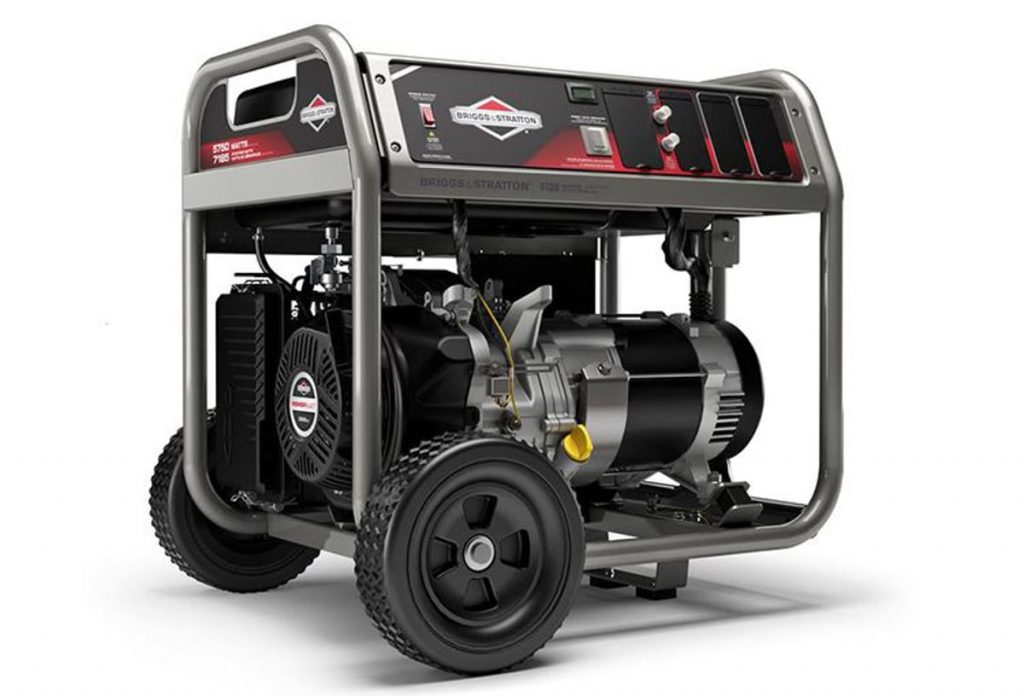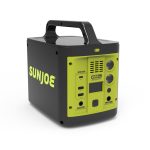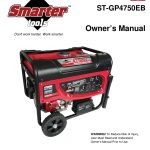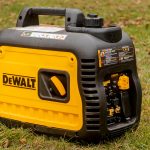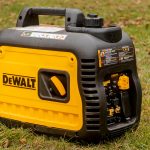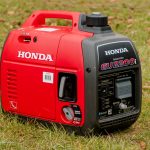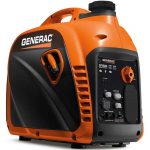When it comes to purchasing a generator to power a house, size is very important. The size of the generator you will need will depend on the total wattage of the items you intend to power. You may need a smaller generator if you don’t have many appliances that need to be powered. On the other hand, a larger generator will be necessary if you have a lot of items that need to be powered. Before you make a purchase, it is important to figure out exactly which items you will need to power and calculate their wattage.
Once you have a total wattage figure, you can then decide which size generator you need. Generally, you will need a generator with a wattage rating of at least 10% higher than the total wattage of the items to be powered in order to ensure reliable power. When looking for a generator to power your house, consider what size is needed to provide the necessary wattage. If you are unsure, consult an expert to help you decide the appropriate size. With the right size generator, you can ensure that your house has the power it needs.
Can you permanently run a house on a generator?
It is important to consider whether you would like to be able to permanently run your house on a generator. There are a few advantages that come with running your house on a generator. First, you will be able to sustain your power needs even in the event of an extended power outage. Additionally, you’ll have a more reliable power source that is not subject to the same fluctuations that other power sources can experience. However, it is important to note that while you can permanently run a house on a generator, it may not be the most cost-effective option.
Generators require a lot of fuel that can be expensive and require frequent maintenance. Additionally, you’ll need to ensure that you have the necessary safety precautions in place to ensure that your house is safe and compliant with local regulations. Overall, running your house on a generator can be a great way to ensure that you always have a reliable power source. However, if you decide to do so, you should weigh the costs and benefits, as well as the local regulations, to ensure that it is the right choice for you.
How do you plug a generator into your house?
Buying a generator can be a great way to provide emergency power to your home if the power goes out. But in order to use the generator, you need to know how to plug it into your house. The first step is to make sure your generator has a transfer switch. This switch allows you to safely switch between your main power source and your generator. Then you will need to connect the generator to the transfer switch using an external cord.
Once the generator is connected to the transfer switch, you need to make sure the switch is in the off position. Then you can start the generator and turn the switch to the “on” position. This will allow the generator to provide power to your home. Finally, you need to make sure all your appliances are plugged in to the generator. If the generator has multiple outlets, you can plug each appliance into a separate outlet. That way, you can make sure the generator is providing enough power to all of your appliances. To make sure the generator is working correctly, you should regularly check your home’s electrical system. If there are any issues, you should turn off the transfer switch and contact an electrician. Following these steps should ensure your generator is providing reliable power to your home.
How much does it cost to buy an electric generator?
Buying an electric generator can be an expensive undertaking. Prices for electric generators vary widely depending on the size, type, and power output of the generator. Small portable electric generators for home use may cost around $400, while larger, industrial-sized generators may cost as much as $10,000 or more. The size and model of generator you choose will also determine the cost of the unit. For instance, generators with digital displays, automatic start and stop, and multiple outlets will cost more than basic models.
Extra features such as a low noise level, a long run time and a high power output will also increase the cost of the generator. Also, consider the cost of any additional supplies you may need, such as fuel and oil. The cost of these supplies can add up quickly, so make sure to factor them into your budget. When researching electric generators, it is important to make sure you are getting the best value for your money. Check out customer reviews of the generator you are considering to make sure you are getting the best quality for your money. In short, the cost of an electric generator can range from relatively affordable to very expensive, depending on your needs and the type of generator you choose. Be sure to do your research and get the best generator for your needs.
Are electric generators worth it?
Electric generators are a great investment for those who are looking for an efficient way to produce power. They can be used to provide power in a variety of situations, from powering your home during a power outage to powering remote equipment at a construction site. In addition to providing reliable, consistent power, electric generators are also cost-effective and can help reduce your energy costs. When deciding whether to purchase an electric generator, it is important to consider the size of the generator, the type of power it produces, and the cost associated with it. Smaller generators are usually more affordable and can be used to power smaller devices like laptops and cell phones.
Larger generators can produce more power, making them ideal for powering larger appliances and tools. When considering the cost of an electric generator, it is important to factor in the cost of installation, maintenance, and fuel. Generators can be quite expensive, but the cost of operation over time can be significantly lowered with proper care and maintenance. Additionally, electric generators are much safer for the environment than gas-powered generators and can help reduce pollution. Overall, electric generators are well worth the investment for those looking for a reliable source of power. They can help reduce energy costs and help protect the environment. When considering whether to purchase an electric generator, it is important to weigh the cost and size of the generator against the power it produces and the cost of its operation.
How many watts do you need to power a house?
When it comes to buying a generator to power a house, it is important to know how many watts you will need. Usually, the average household needs between 8,000 and 10,000 watts of power. This is a good starting point, but it is also important to factor in the specifics of your home. Consider the number of appliances, lights, and other electrical needs that your home needs to power. Make sure to consider the size of your home and any additional needs, such as air conditioning or heating.
When choosing the size of generator you need for your home, it is important to select one with enough wattage to meet your needs. Generators come in a variety of wattage levels, so make sure to select one that meets your needs. It is also important to think about the fuel type you will need for your generator. Different types of generators require different types of fuel, such as gasoline, propane, or natural gas. Make sure to select a generator that will work with the fuel source you have available. When it comes to buying a generator to power your home, make sure to factor in how many watts you will need, the size of your home and the types of appliances it needs to power, and the type of fuel that is available. With the right generator, you can ensure that your home has the power it needs.
What size generator do I need to run my house during a power outage?
When looking to buy a generator for your home in the event of a power outage, it is important to know what size generator you need in order to ensure that your power needs are met. Firstly, you should determine the total wattage of all your household items that you wish to power during the power outage. This includes items such as lights, refrigerators, freezers, sump pumps, furnaces, water heaters, and any other items that you need to have working. Once you have the total wattage, you can then determine the size generator you will need. Generally, a generator rated at 3000-5000 watts will be sufficient to power small to medium sized homes.
However, if you have specific requirements, such as needing to power larger appliances, you may need to purchase a generator that is larger than 5000 watts. It is important to note that the wattage of your generator should exceed the wattage of the items you wish to power. Additionally, your generator should have enough wattage to accommodate any surges that may occur when the generator is running. Finally, it is also important to consider the fuel type for your generator. Most homes use gasoline powered generators, but there are also diesel generators, propane generators, and natural gas generators available. Each of these has its own advantages and disadvantages, so be sure to research which is the best option for your home and your particular needs.
How do I hook up a generator to my house?
When you’re looking to buy a generator for your home, you’ll need to know how to hook it up to your house. This can be an intimidating task, but it can be done with a few easy steps. First, you’ll need to make sure you’re purchasing the right type of generator for your home. Some generators need to be hardwired into your home’s electrical system, while others can be used with a cord and plug in. Once you’ve got the right generator, you’ll need to make sure it’s placed in a safe, dry location and that it’s securely grounded.
You should also make sure the generator is properly ventilated. Next, you’ll need to install a transfer switch. This switch will allow you to connect the generator to your home’s electrical system. Be sure to follow all safety instructions when installing. Finally, you’ll need to power up the generator and connect it to your home’s electrical system. Make sure you connect the generator to all the circuits you want to be powered. Once you’ve done this, you’ll be able to enjoy the convenience of having a generator in your home.
What size generator is needed to power a house?
Depending on the size of the house and the number of electrical appliances that need to be powered, a different size generator may be needed. For a small house, a generator with a power output of around 5,000 watts should be enough to power most of the essential appliances, such as lights, a refrigerator, and a television. For larger homes with more appliances, a generator with a higher output of around 7,500 to 10,000 watts should be sufficient. It is important to keep in mind that the size of the generator can also be affected by the type of fuel you plan on using. For example, generators that run on gasoline may need to be larger than those that run on propane.
Therefore, it is important to consider the fuel type when selecting a generator. It is also important to factor in safety when selecting the right generator size. Generators of higher wattage require larger outlets and more robust wiring, so it is important to ensure that the wiring and outlets are up to code before selecting the size of the generator. Ultimately, when selecting the size of generator to power a house, it is important to consider the size of the home, the number of appliances that need to be powered, the type of fuel being used, and the safety requirements of the wiring and outlets. By considering all of these factors, you can ensure that you purchase the right size generator for your house.
What is the average cost to have a whole house generator installed?
Buying a whole house generator can be a sizable investment, and the cost of installation will vary greatly depending on factors such as the size of the generator needed and the complexity of the installation. Generally, having a whole house generator installed will cost an average of around $3,500. This cost includes the generator, installation labor, and any other related costs. The cost of installation will also depend on the type of generator you buy. For example, whole house generators that use natural gas are generally less expensive to install than those that use diesel fuel.
Additionally, the cost of installation may be higher if your home or other buildings on the property need to be modified to accommodate the generator. When shopping for a whole house generator, keep in mind that the cost of installation should be factored into the overall budget. If you are unsure about the estimated cost of installation, it’s best to contact a professional to get a more accurate estimate. Finally, be sure to factor in the cost of regular maintenance for your generator. Without proper maintenance, your generator will not work as efficiently as it should. In addition to helping ensure that your generator is working properly, regular maintenance will help extend its lifespan, making it an even better investment for your home.
What time of year do generators go on sale?
Shopping for a generator can be a great way to save money and prepare for unexpected power outages. When it comes to buying a generator, the best time to buy is usually during the off-season. Generators typically go on sale in the late fall or early winter, when demand for them is at its lowest. During this time of year, you can usually find good deals on popular brands and models of generators. You may also be able to get a discount if you buy from a store that is trying to clear out their inventory. It is important to compare prices and features of different models to make sure you get the best deal for your money. Overall, the best time to buy a generator is usually in the late fall or winter, when prices are lower and selection is better.
What is the typical lifespan of a generator?
When it comes to buying a generator, it’s important to know the typical lifespan of the generator you’re looking at. Generally, the lifespan of a generator depends on how well it is maintained and how often it is used. Most generators have a lifespan of around 5 to 10 years, depending on the type and size of the generator. This is based on the expectation that the generator would be serviced regularly and used at least once a month. If your generator does not receive regular maintenance, however, it’s lifespan could be significantly reduced.
This is due to the fact that the generator’s parts may become worn out over time, making the generator less efficient and potentially leading to permanent damage. In order to get the most out of your generator, you should make sure that it is serviced regularly and kept in good working order. This will ensure that your generator lasts for its full lifespan and provides the power you need. Overall, the typical lifespan of a generator can range from 5 to 10 years, depending on how it is maintained and how often it is used. So make sure you buy a generator that is reliable and of high quality, and take the necessary steps to ensure that your generator lasts for its full lifespan.
How long do most generators last?
When it comes to generator buying, a key question is: how long do most generators last? Generally speaking, most generators are meant to last several years. Generators are very durable and reliable machines, but they do require regular maintenance to remain in good working order. The lifespan of a generator can vary significantly depending on the quality of the machine and how often you maintain it. High-quality generators that are regularly serviced can last up to 10 years or more. Cheaper models may not last as long, and may require more frequent maintenance.
It is also important to consider the amount of use a generator sees. Generators that are used often, such as those in an industrial setting, may not last as long as those that are used less frequently. Ultimately, when purchasing a generator, it is important to consider the quality of the machine and how often you plan to use it. Doing so can help you determine how long your generator is likely to last. With proper maintenance and use, most generators should last several years, so you can feel confident in your purchase.
What kind of generator is best for home use?
When it comes to buying a generator for home use, it is important to consider what kind of generator would be the most suitable for your needs. There are many types of generators on the market, and each has its own advantages and disadvantages. Portable generators are the most popular choice for home use as they are relatively light and easy to move around. A portable generator is ideal for powering a small number of appliances and devices at the same time. They are also easily stored, and some models come with built-in wheels for easy transport.
Standby generators are another popular option for home use. These generators are stationary and hardwired into a home’s electrical system, providing a reliable power source in the event of a power outage. Standby generators are more powerful than portable generators and can power an entire home if needed. Inverter generators are a newer option on the market and are a great choice for home use. Inverter generators produce cleaner power than traditional generators, making them a safe choice if you plan on using sensitive electronic devices. They are also more fuel efficient than traditional generators and are generally quieter. When looking for the best generator for home use, it is important to consider all of the options available and choose the one that best meets your needs. Consider the size, portability, power output, and fuel efficiency of the generator and compare different models to find the best one for your home.
How big must a generator be to run my house?
The size of the generator you will need will depend on the size of your house and the amount of power it requires. If your home is quite large, or if you have multiple appliances that require a lot of power, then you will need a generator with a large wattage capacity. On the other hand, if your home and appliances require less power, then you may be able to get away with a smaller size generator. It is also important to consider the fuel type and load type when selecting a generator. For example, a diesel generator will require more fuel to run than a gasoline generator.
Similarly, a generator with a higher load type will require more power than a lower load type generator. Before buying a generator, it is recommended that you consult with an expert to determine the size and type of generator that will be most suitable for your home’s power needs. This will help to ensure that you get the most cost-effective and efficient generator for your needs. In conclusion, the size of the generator that you need to run your house will vary depending on the size of your home and the amount of power it requires. It is important to consult with an expert to determine the most suitable size and type of generator for your needs.
What size generator is needed for average home?
When considering the purchase of a generator for an average home, you should consider the size of the generator needed to power your home. Generally, you will need a generator that produces at least 5,000 watts of power. This will allow you to power the majority of appliances and electronic devices in your home. If you live in an area prone to extended power outages, you may want to consider a larger generator. Generators that produce 8,000 to 10,000 watts of power are ideal for powering an entire home and all its appliances.
It is also important to consider the type of fuel the generator uses. Generators that use gasoline are the most common, but some models use diesel, propane, or natural gas. Make sure the type of fuel you choose is readily available in your area. No matter what size generator you choose, it’s important to ensure that it is installed properly and safely. Hiring a professional to install your generator can save you time, money, and hassle. Finally, when purchasing a generator, make sure you read the manufacturer’s instructions and safety guidelines to ensure that it is safe for your home. Taking these steps can ensure that your generator will provide you with reliable power for years to come.
What kind of generator should I buy?
It can be difficult to decide what kind of generator to buy. When making your decision, it is important to consider the size, power output, fuel type, noise level, and cost. For smaller applications, such as camping or tailgating, a portable generator may be the best choice. These are usually fuelled by gasoline and are relatively smaller and quieter than other types of generators. For more industrial applications, such as construction sites or large events, a stationary generator may be the best option. These are usually more powerful and can be fuelled by gasoline, propane, or natural gas. If you are unsure of what kind of generator to buy, it may be best to consult an experienced professional to get a better understanding of your needs and help you make the best decision.
What is the best gas generator?
When you are looking to purchase a generator, it is important to understand what the best gas generator is. Generally, the best gas generator should be reliable and have a powerful engine. It should also have a low operational cost and be easy to set up and maintain. The best gas generators typically have a durable design and can run for long periods of time without needing a refuel. They should also be efficient, with a high fuel consumption rate and a low noise level.
Additionally, the best gas generators are often made from quality materials and have a long lifespan, making them a great investment. When choosing the best gas generator for your needs, it is important to consider factors such as the size of the unit, its fuel capacity, and how much power it can provide. It is also important to think about how you plan to use the generator, such as for power outages or recreational activities. Finally, when making your purchase, it is important to choose a reputable supplier who can provide you with the necessary technical support and service. A reliable supplier will be able to provide you with all the information and advice you need to make the best choice. Overall, the best gas generator is one that is reliable, efficient, and easy to set up and maintain. With the right research, you’ll be sure to find the perfect gas generator for your needs.
Why to buy a generator?
Generators provide a reliable source of power in any emergency situation. Buying a generator is one of the best ways to ensure that your home and family will have continuous power during unexpected power outages. Having a generator allows you to keep everyday items running such as lights, refrigerators, AC, heaters, and stoves. This is especially important for those who live in areas that tend to experience frequent power outages. Having your own generator also ensures that you are not dependent on your neighborhood or the power grid to provide power in an emergency.
This gives you the peace of mind of knowing that you are not dependent on anyone else for your electricity needs. Moreover, generators can also help you save money on electricity bills. By using a generator, you can power some of your regularly used appliances such as television and computer, thereby reducing not only your electricity bills but also your dependence on the power grid. Finally, generators can be a great addition to your home and can provide you with an additional source of power in any emergency situation. Whether you are looking for a reliable source of power during a power outage, or simply want to reduce your electricity bills, buying a generator is an excellent choice.
Should I buy a portable generator?
When it comes to buying a portable generator, there are a few things to consider. First, you need to decide what type of generator you need. Portable generators are great for providing temporary power during emergencies, but you may also want to consider a generator for recreational activities like camping or tailgating. Second, you need to consider the size of the generator and the amount of power it can generate. Third, you should think about the cost of the generator and its associated costs, such as fuel and maintenance.
Fourth, you should research the different features available, such as fuel efficiency, noise level, and any warranties or guarantees. Lastly, make sure to read customer reviews to determine if the generator is a reliable option. Ultimately, if you feel that the portable generator is the right choice for your needs, then you can make the purchase.
Are generators still hard to get?
Unfortunately, in many areas, generators can be difficult to find. Demand for generators is often high during power outages, and supplies can dwindle quickly. That said, it is possible to buy generators online or through retail outlets, so it is not impossible to find one. It is just important to be aware that supply may be limited. When buying a generator, it is important to consider the size, power output, fuel efficiency, and cost of the generator.
This will help ensure that you get the right model for your needs. It is also important to remember that generators require regular maintenance in order to keep them running properly. Failure to do so can lead to breakdowns and expensive repairs. All in all, generators are still hard to get in many areas, but they are available if you know where to look. If you do decide to get one, make sure to consider all the factors mentioned above to make sure you get the right one for your needs.
How long can a generator keep a house running?
When you buy a generator, you’re investing in a reliable source of power for your home when the electricity goes out. Generators come in all sizes, from small portable units to large, heavy-duty ones. But no matter the size, when you buy a generator, you’re wondering exactly how long it can keep your house running. The duration of a generator depends on several factors, including its type and size, the amount of load it is carrying, and how long it can continue to produce energy. Generally speaking, a generator with a large capacity and the right components can keep your house running for days or even weeks.
However, most generators will only run for a few hours before they need to be refilled with fuel or switched off to avoid overheating. In addition to the size of the generator, the amount of load it’s carrying will also determine how long it can keep a house running. If the generator is overburdened with too many items drawing power, it will be less efficient and won’t last as long as it otherwise could. Finally, the type of generator you buy will also have an effect on its duration. For example, diesel generators are generally more reliable and can run for longer periods of time than gasoline generators. So when you buy a generator, you’re investing in a reliable source of power for your home when the electricity goes out. But how long a generator can keep your house running will depend on a variety of factors like its size, the amount of load it’s carrying, and the type of generator you purchase. By understanding these factors, you can make sure you select the right generator for your needs.
What is the lifespan of a generator?
When considering the purchase of a generator, it is important to understand the lifespan of a generator. Generators are designed to last for a significant period of time, depending on the quality of model and the frequency of use. An industrial-grade generator is designed to last up to 10 years, while a recreational-grade generator may only last 1-3 years. A generator used for emergency backup power will last longer than one used frequently. Regular maintenance and proper storage will also help extend the life of a generator.
In general, the lifespan of a generator can range from 1-10 years. The frequency of use and quality of the model will determine how long the generator will last. High-end models with regular maintenance could last even longer than 10 years. When purchasing a generator, it is important to consider the longevity of the product. Look for models with a good warranty and high-quality parts that are designed to last. It is also important to perform regular maintenance and store the generator appropriately to ensure it lasts as long as possible.
How much is it to buy a generator?
Buying a generator can be quite expensive. The cost of a generator depends on factors such as the size and type of generator you are looking to purchase. For example, a small portable generator may cost anywhere from a few hundred dollars to a few thousand dollars. On the other hand, if you are looking for a larger generator for your home, you may be looking at prices in the thousands or even tens of thousands of dollars. Not only do you have to consider the cost of the generator itself when buying, but you also have to take into account the cost of installation and any additional accessories that may be needed.
You will also need to factor in regular maintenance and repair costs over the life of the generator. Therefore, the total cost of buying a generator can vary greatly depending on your particular needs. It is important to shop around to find the best deal. You should also make sure to do your research and read reviews to get an understanding of the quality of generator you are thinking of buying. Overall, the cost of buying a generator can range from a few hundred dollars to tens of thousands of dollars depending on the size, type, and quality of generator you are looking to purchase. Doing your research and shopping around can help you find the best deal.
How long do generators last?
When it comes to purchasing a generator it is important to consider how long it will last. On average, a generator can last anywhere from 8 to 10 years, depending on its use and maintenance. Generators that are not well maintained can start to breakdown after a few years of use. It is important to note that the life of a generator is largely determined by how well it is cared for. Regular maintenance is essential for a generator to work properly and last longer.
This includes changing the oil and filters regularly, as well as checking for any worn out parts and replacing them if necessary. In addition, the amount of use and the environment in which the generator is stored also affects its life span. If a generator is used for long periods of time or exposed to extreme temperatures and humidity, it is more likely to experience breakdowns or failures. When it comes to buying a generator, it is important to research the generator’s life expectancy, as well as the warranty and maintenance requirements. This will ensure that you are purchasing a quality generator that will last for years to come. With proper care, a generator can provide you with reliable power for many years.
Is it worth installing a home generator?
A home generator can be a great investment for anyone who lives in an area prone to power outages or who wants to be prepared for an emergency. Installing a home generator can provide you with the peace of mind that you will always have a reliable source of power. When looking to buy a generator, it is important to consider the size of the unit and the kind of fuel it will require. A smaller, gasoline-powered generator may be a good option for occasional use, while a larger, diesel-powered unit may be better for extended back-up power. Another factor to consider when buying a generator is the cost.
The purchase price of the generator itself is only one part of the cost. Installation costs, fuel costs and maintenance costs should also be factored in when determining the total cost of ownership. In addition, you will need to make sure the generator you buy is compatible with your current electrical system. If you do not have the technical knowledge to make sure the generator is properly wired and installed, it is advisable to hire a professional electrician to do the job. Overall, whether or not installing a home generator is worth it will depend on your individual needs and the total cost of ownership. If you need reliable power in an emergency or if you live in an area prone to power outages, investing in a home generator is likely worth the cost.
